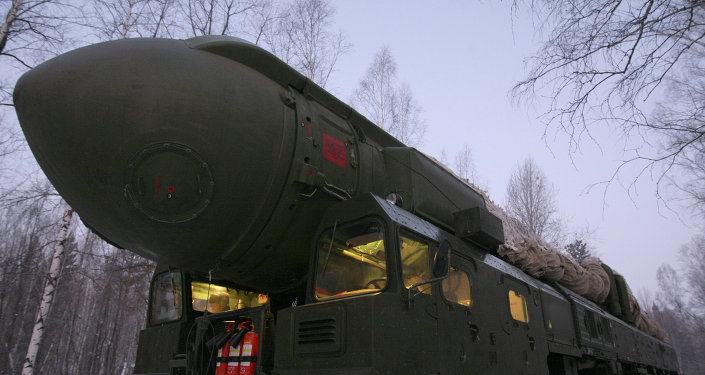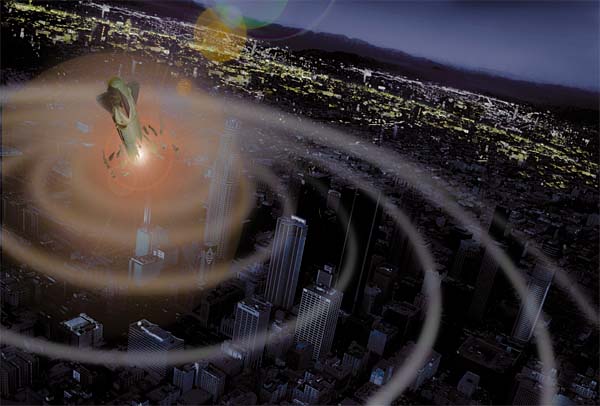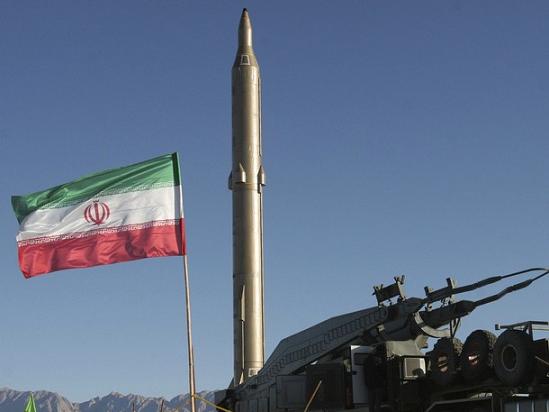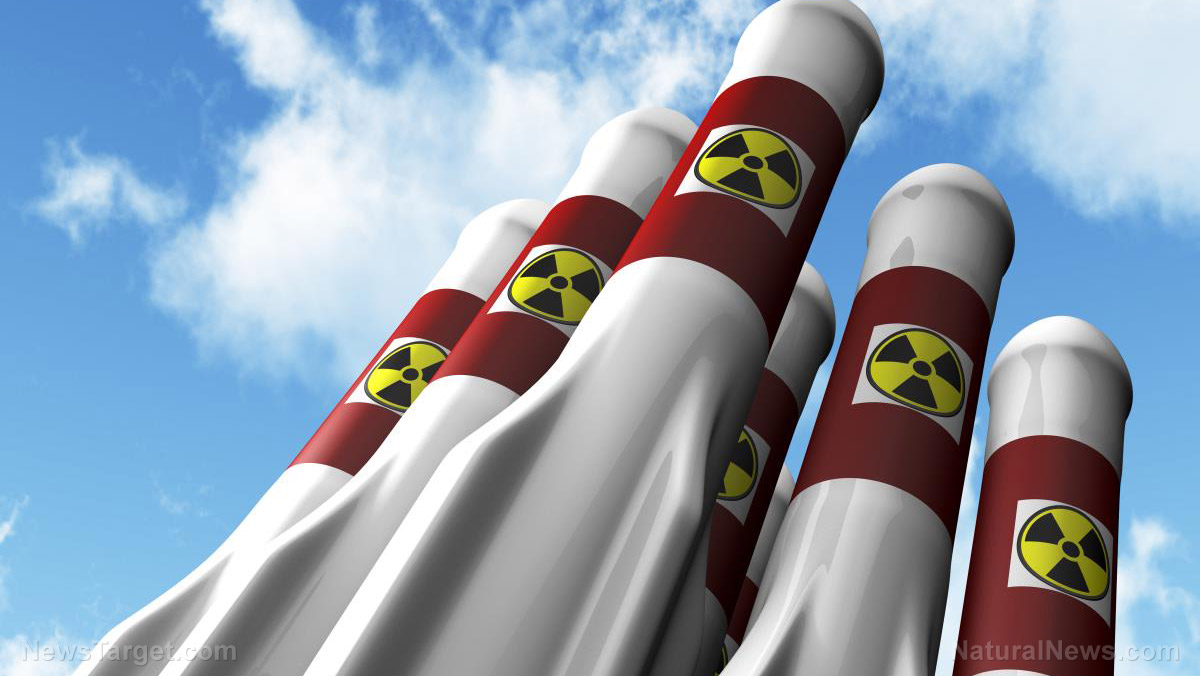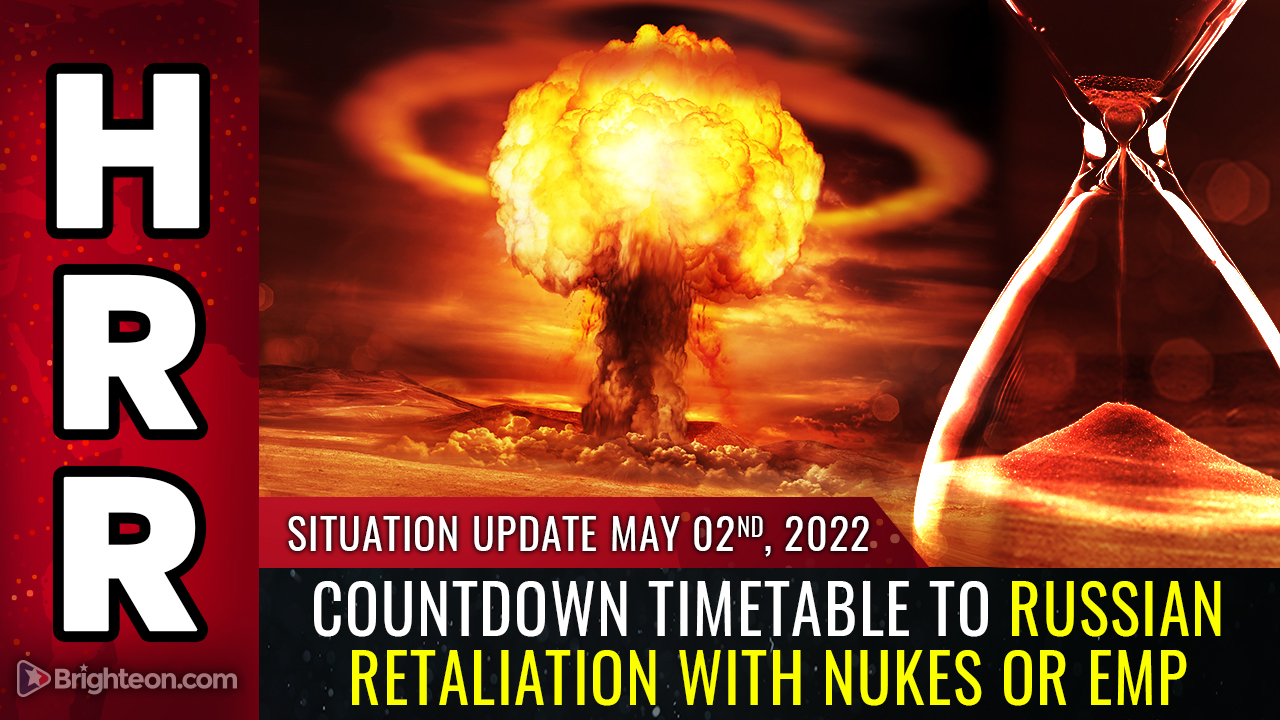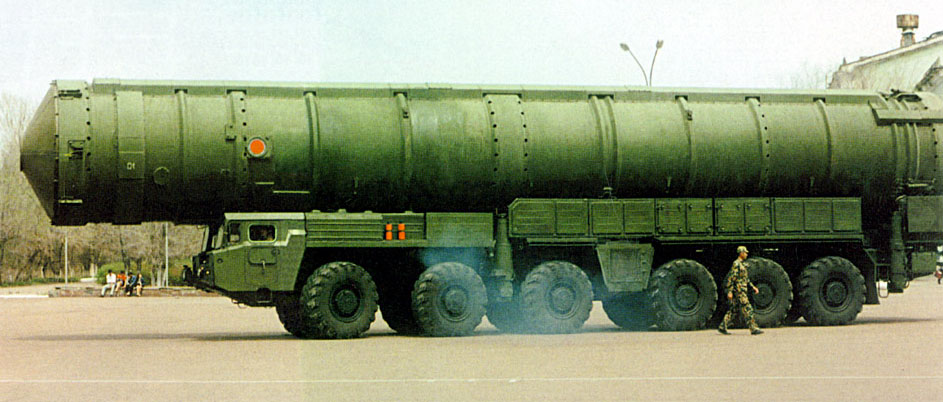Bombshell Twitter thread reveals deep ties between Nazi Germany’s V-2 rockets, US nuclear weapons and missile tech
06/15/2022 / By JD Heyes

A lengthy Twitter thread posted by a user called Charles Wing-Uexküll unveiled remarkable details about a post-World War II program to bring former Nazi scientists to the United States where they were put on U.S. government payroll to help America develop then-nascent missile and nuclear weapons technology.
The program called “Operation Paperclip” was a secret program in which more than 1,600 Nazi German scientists, engineers and technicians were purportedly brought to the U.S. in the months and years after the war ended in Europe. Largely carried out by agents of the U.S. Army’s Counterintelligence Corps, many of the German personnel were former members or leaders of the Nazi Party.
“The web of interconnections between Nazi V-2 rockets, American nukes and missile tech are more spiritually significant and esoteric than the conventional narrative of Operation Paperclip. This thread is about my grandfather’s role in this story and his search for the truth,” the thread began.
“The conventional story is that in the final weeks of WW2, the U.S. Army found Dr. Wernher von Braun, the lead V-2 rocket scientist, and took him, hundreds of technicians and V-2 rockets to the United States, where they founded the U.S. space program,” Wing-Uexküll continued. “WvB, a Prussian aristocrat and aerospace engineer, designed the V-2 rocket, which climbed to 55 miles in altitude before landing more than 200 miles away and detonating a 1,000-kg warhead.”
He noted that more than 1,400 of what were the world’s first ballistic missiles struck England during the war, while some 590 hit Antwerp, Belgium, the Allies’ main port.
WvB, a Prussian aristocrat and aerospace engineer, designed the V-2 rocket, which climbed to 55 miles in altitude before landing more than 200 miles away & detonating a 1,000 kg warhead.
In 1944-5, approximately 1,400 V-2s hit England and 590 hit Antwerp, the Allies’ main port. pic.twitter.com/yA79RCO8N4
— Charles Wing-Uexküll (@CWingUexkull) June 11, 2022
“After the war, von Braun went to Fort Bliss near El Paso, Texas, to build the first operational & guided surface-to-air missile, the Nike Ajax. The Nike Ajax was designed to hit high-flying strategic bombers and played a crucial role in strategic air defense in the 1950s,” the thread continued, noting that von Braun met Wing-Uexküll’s grandfather at the military installation.
His grandfather had earned a bachelor’s degree in chemistry and was training U.S. Army soldiers in how to fuel, de-fuel and arm Nike missiles by 1954.
“A few years later and out of the Army, Grandpa W– got into nuclear energy. He worked at Argonne National Lab in Chicago, an early government site for nuclear energy built around Fermi’s Chicago Pile-1, the world’s first nuclear reactor that went critical in 1942,” he added.
His grandfather then started to specialize in industrial hygiene, or identifying the dangers, stressors and risks to workers in industrial settings. He dismantled CP-1 in Chicago before transferring to nuclear weapons manufacturing sites in Oak Ridge, Tennessee.
“In Oak Ridge, grandpa became an expert in detecting and mitigating the byproducts of nuclear weapons manufacturing, especially uranium enrichment. He worked with stockpiles of waste that were stored for decades, and figured out how to maintain their integrity and eventually transport them,” Wing-Uexküll noted further.
At one point, his grandfather met “Paul Tibbets, the pioneering pilot of the Enola Gay, the specially-modified B-29 Superfortress that dropped the atomic bomb on Hiroshima.”
Tibbets’ crew for the Hiroshima mission included his best friends, navigator Ted ‘Dutch’ Van Kirk and bombardier Tom Ferebee, with whom he’d flown for years.
Tibbets pulled a hard manuever, a 155 degree turn, to put the Enola Gay tangent to the blast and get away in time. pic.twitter.com/jNvUqo41R7
— Charles Wing-Uexküll (@CWingUexkull) June 11, 2022
“My grandfather’s network and projects showed how the worlds of nuclear weapons and missile technology were connected, going back to the 1950s and perhaps before,” the thread continued. “That’s what made his trips to Peenemunde and Antarctica in the 1990s, after his retirement, so mysterious.”
“From there, grandpa went to Peenemunde and poked around for a few weeks, going to the Museum and the ruins of test launch sites and assembly plants. I still don’t know what he was looking for,” noted Wing-Uexküll.
“Again, I’m not sure what he was looking for, these were supposedly tourist trips, but he hated nature. I know that he knew that it was possible to mass-produce large rockets underground – he had studied the V-2 Mittelwork factory, where 60,000 slaves had built von Braun’s weapon,” the thread added.
Again, I’m not sure what he was looking for, these were supposedly tourist trips ,but he hated nature.
I know that he knew that it was possible to mass-produce large rockets underground—he had studied the V-2 Mittelwork factory, where 60,000 slaves had built von Braun’s weapon. pic.twitter.com/UAPZj7Gwfj
— Charles Wing-Uexküll (@CWingUexkull) June 11, 2022
“I do know that my grandfather’s dark, terrifying reverence for rocketry and his awe of atomic weapons and their destruction power consumed his life even after his retirement,” he wrote, adding that “like von Braun who went seamlessly from the SS to the Kennedy admin, he was never ‘re-educated’ post-WW2.”
Later, Wing-Uexküll noted that von Braun’s dissertation was classified until 1960, but he was publishing about reaching Mars as early as 1948, adding: “I’m determined to find out what my grandfather learned about German rockets, atomic energy, and Antarctica at the end of his life. There’s a strange, mystical brotherhood that existed between these obsessives who aimed for the stars, no matter the human cost. Almost a secret society.”
“So when I say I don’t know what my grandfather was looking for in Peenemunde or in Antarctica, I’m not sure if it was evidence of atomic energy – or energy of an even more fundamental kind,” the thread concluded.
Sources include:
Submit a correction >>
Tagged Under:
ballistic missiles, big government, conspiracy, deception, Dr. Wernher von Braun, military tech, missile technology, Nazi Germany, Nazi Party, Nazis, nuclear technology, nuclear weapons, space travel, U.S. nukes, US, V-2 rockets, weapons technology, World War II
This article may contain statements that reflect the opinion of the author



